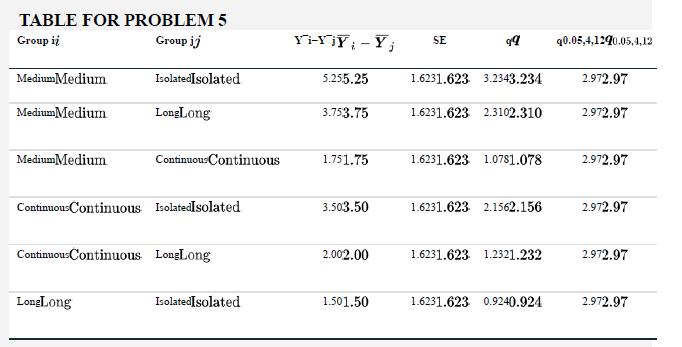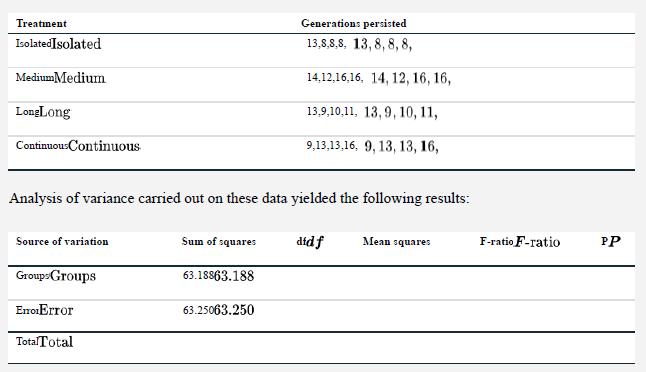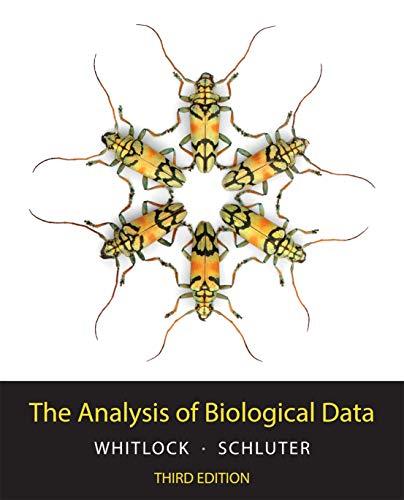The TukeyKramer procedure was carried out on the results of Practice Problem 4, yielding the results at
Question:
The Tukey–Kramer procedure was carried out on the results of Practice Problem 4, yielding the results at the bottom of this page.
a. What are the null and alternative hypotheses being tested?
b. Are these comparisons considered planned or unplanned? Why?
c. The largest pairwise difference between means, that between the “medium” and “isolated”
treatments, is statistically significant. How is this possible, given that neither of these two means is significantly different from the means of the other two groups?
d. Explain in words why the critical value for each test (2.97) is larger than the critical value of the t–distribution having 12 degrees of freedom (2.18).

Data from problem 4
An important issue in conservation biology is how dispersal among populations influences the persistence of species in a fragmented landscape. Molofsky and Ferdy (2005) measured this in the annual plant Cardamine pensylvanica, a weed that produces explosively dispersed seeds. Four treatments were used to manipulate seed dispersal by changing the distance among experimental plant populations. These treatments were adjacent (continuous treatment), separated by 23.2 cm (medium), separated by 49.5 cm (long), or separated by partitions that blocked all seed dispersal among populations (isolated). Treatments were randomly assigned to plant populations. The data below are the number of generations that the populations persisted in four replicates of each treatment.

Step by Step Answer:

The Analysis Of Biological Data
ISBN: 9781319226237
3rd Edition
Authors: Michael C. Whitlock, Dolph Schluter





